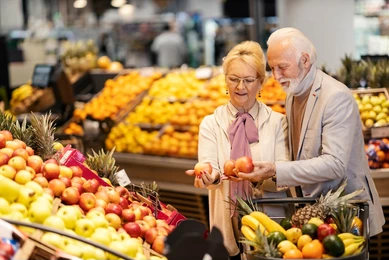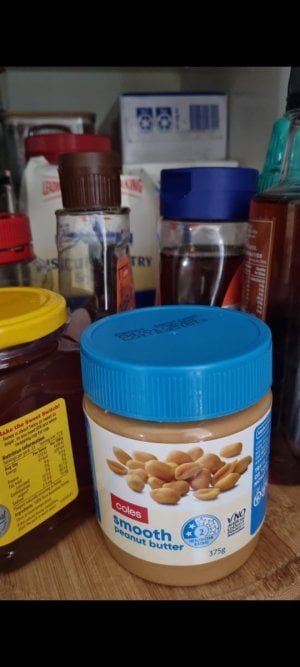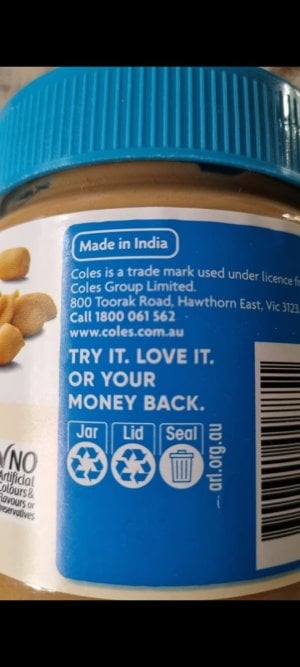Discover the Thrifty Trend: Why Savvy Shoppers Are Ditching Big-Name Brands for Supermarket-Owned Labels
By
- Replies 21
Seniors often face the ongoing challenge of keeping their expenses in check. With the cost of living constantly increasing, and limited income from small pensions, many must seek out more affordable options for their essential items and everyday groceries.
As many savvy shoppers look for ways to penny-pinch without compromising on the quality of the items they put in their shopping baskets, a growing trend has emerged of late – the rise of supermarket-owned labels.
Often sold under the store’s own name, these products are typically a much cheaper alternative to the brands we know and love while, hopefully, still delivering quality.
No longer a poor cousin to the branded items we've come to know and love, 'own-brand' products now line the aisles of major Australian grocery retailers – including Coles and Woolworths – as their popularity and sophistication rise.

These products now don sleek, modern packaging and are increasingly indistinguishable from their name-brand counterparts.
After all, who can resist adding staples such as Daley St coffee at Coles or Voeu face masks at Woolworths to their cart, especially when they're less expensive than their branded rivals?
The combination of skyrocketing inflation and rising mortgage rates has provided ideal conditions for the growth of more competitively prices supermarket-owned brands.
Coles' exclusive label sales have surged by 11.4% during the three months leading up to March, resulting in a staggering revenue of $2.9 billion.
Similarly, Woolworths' own-brand products have experienced a sales increase of 9.1%, with categories such as pantry staples and dairy products even seeing a spike of up to 20%.
Experts also noted that the phenomenon of ‘trading down’ is a significant factor contributing to the success of supermarket-owned brands.
This term refers to shoppers' behaviour during tough economic times, where they choose to purchase more budget-friendly items as a means of cutting costs.
Coles' outgoing chief executive Steven Cain stated: We’ve been growing our own brand faster than total sales for quite some time now – it has been a key part of our strategy to do that.'
He highlighted the astounding 40 per cent year-on-year growth of their home brand pasta sales as an example.
Woolworths' CEO Brad Banducci echoed Cain's sentiments, pointing to own-brand rice flying off the shelves as a prime example.
'[Shoppers] are becoming more functional, and they are having more meal occasions at home,' he said.
The shift in focus towards supermarket-owned brands has broadened their appeal beyond just the most budget-conscious shoppers.
Grocery retailers are now creating unique products with higher price points, such as specialty meat ranges, toiletries, and home goods, that are gaining significant traction.
Mr Banducci also discussed the success of their quarterly sales and highlighted their highest growth brand as the Macro brand.
‘Our highest growth brand inside our own brands has been the Macro brand,’ he said.
The Macro Wholefoods range features specialty health foods such as steaks and nuts.
The popularity of supermarket-owned brands in Australia is not limited to just grocery stores, as seen by the success of Kmart's Anko products.
The discount department store's in-house brand has gained so much traction that the company is now exporting the line globally.
Wesfarmers, Kmart's parent company, confirmed in a presentation to the Macquarie Australia conference earlier this month that Anko is now available for purchase in Canada.
The brand is also being sold in India through Amazon.

The increasing popularity of supermarket-owned labels among savvy seniors is not just a passing trend.
With improved quality and affordability, more and more people are embracing these budget-friendly options. By making the switch to these products, we can make a significant difference in our weekly grocery bills without compromising on taste or quality.
As the cost of living continues to rise, it's essential to find ways to cut costs without sacrificing on the quality of our daily essentials.
And with many supermarkets offering a money-back guarantee on their own-brand items, there's no risk in giving them a go.
Have you tried any supermarket-owned labels? What has been your experience with them?
We also recommend checking out this article, where we shared the top trusted brands in Australia for 2023.
As many savvy shoppers look for ways to penny-pinch without compromising on the quality of the items they put in their shopping baskets, a growing trend has emerged of late – the rise of supermarket-owned labels.
Often sold under the store’s own name, these products are typically a much cheaper alternative to the brands we know and love while, hopefully, still delivering quality.
No longer a poor cousin to the branded items we've come to know and love, 'own-brand' products now line the aisles of major Australian grocery retailers – including Coles and Woolworths – as their popularity and sophistication rise.

Own-brand items are increasingly popular among consumers due to their ability to provide quality products at a more affordable price than their name-brand rivals. Credit: Shutterstock.
These products now don sleek, modern packaging and are increasingly indistinguishable from their name-brand counterparts.
After all, who can resist adding staples such as Daley St coffee at Coles or Voeu face masks at Woolworths to their cart, especially when they're less expensive than their branded rivals?
The combination of skyrocketing inflation and rising mortgage rates has provided ideal conditions for the growth of more competitively prices supermarket-owned brands.
Coles' exclusive label sales have surged by 11.4% during the three months leading up to March, resulting in a staggering revenue of $2.9 billion.
Similarly, Woolworths' own-brand products have experienced a sales increase of 9.1%, with categories such as pantry staples and dairy products even seeing a spike of up to 20%.
Experts also noted that the phenomenon of ‘trading down’ is a significant factor contributing to the success of supermarket-owned brands.
This term refers to shoppers' behaviour during tough economic times, where they choose to purchase more budget-friendly items as a means of cutting costs.
Coles' outgoing chief executive Steven Cain stated: We’ve been growing our own brand faster than total sales for quite some time now – it has been a key part of our strategy to do that.'
He highlighted the astounding 40 per cent year-on-year growth of their home brand pasta sales as an example.
Woolworths' CEO Brad Banducci echoed Cain's sentiments, pointing to own-brand rice flying off the shelves as a prime example.
'[Shoppers] are becoming more functional, and they are having more meal occasions at home,' he said.
The shift in focus towards supermarket-owned brands has broadened their appeal beyond just the most budget-conscious shoppers.
Grocery retailers are now creating unique products with higher price points, such as specialty meat ranges, toiletries, and home goods, that are gaining significant traction.
Mr Banducci also discussed the success of their quarterly sales and highlighted their highest growth brand as the Macro brand.
‘Our highest growth brand inside our own brands has been the Macro brand,’ he said.
The Macro Wholefoods range features specialty health foods such as steaks and nuts.
The popularity of supermarket-owned brands in Australia is not limited to just grocery stores, as seen by the success of Kmart's Anko products.
The discount department store's in-house brand has gained so much traction that the company is now exporting the line globally.
Wesfarmers, Kmart's parent company, confirmed in a presentation to the Macquarie Australia conference earlier this month that Anko is now available for purchase in Canada.
The brand is also being sold in India through Amazon.
Key Takeaways
- Consumers are increasingly turning to supermarket-owned labels as cost-effective alternatives to branded items amid rising living costs.
- Major grocery retailers have invested in more premium packaging and product lines for their home brands, creating their own brand identities and attracting many fans.
- The booming sales of home brands have been driven by the trend of 'trading down,' as shoppers opt for more value-friendly items during challenging economic times.
- Sales of Coles and Woolworths' home brands have seen significant growth, with Coles' exclusive brands experiencing an 11.4% increase and Woolworths' own brand sales jumping by 9.1%.
The increasing popularity of supermarket-owned labels among savvy seniors is not just a passing trend.
With improved quality and affordability, more and more people are embracing these budget-friendly options. By making the switch to these products, we can make a significant difference in our weekly grocery bills without compromising on taste or quality.
As the cost of living continues to rise, it's essential to find ways to cut costs without sacrificing on the quality of our daily essentials.
And with many supermarkets offering a money-back guarantee on their own-brand items, there's no risk in giving them a go.
Have you tried any supermarket-owned labels? What has been your experience with them?
We also recommend checking out this article, where we shared the top trusted brands in Australia for 2023.









